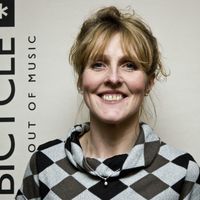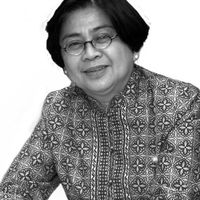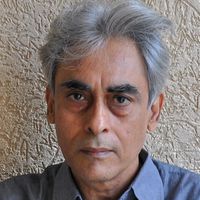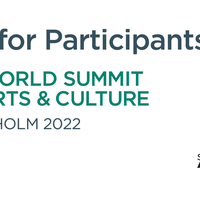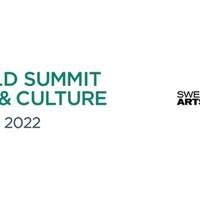A review of the 5th World Summit on Arts and Culture | Australia
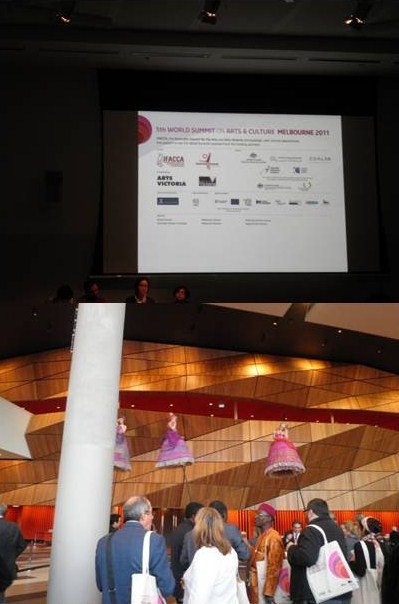 Contributed by Ulla-Alexandra Mattl
Contributed by Ulla-Alexandra MattlOn 3-6 October the 5th World Summit on Arts and Culture took place in Melbourne, Australia, coinciding with the development of a National Cultural Policy of Australia, something of real significance for Asia.
By now the World Summit is an established triennial event in the cultural sector and an opportunity for real international exchange and inspiration by offering a wealth of expertise from across the world. This year the event was jointly organised by IFACCA and the Australia Council for the Arts and in partnership with Arts Victoria.
The Summit’s theme creative intersections explored how artists can give a voice to diverse communities and concerns through collaborations with experts in health and well-being, the environment, education, business, new technologies, cultural identity and more. At the conference Michael Mel (Pro Vice Chancellor, University of Goroka, Papua New Guinea) explained to the audience how even the flora, fauna and bird life can play a crucial role to exchange processes in his country.
While the theme was relevant to everyone attending the Summit, global differences as well as differences between Asia and Europe became very quickly apparent. Quite noticeably issues are handled in different ways and challenges, possibilities as well as priorities differ for the cultural and creative sector and for the artist but also for individual governments, arts funding agencies and stakeholders.
At the same time, however, the three days at the Summit also showed that all of us have just as much in common. On the first day, Eduard Miralles (Cultural Relations Advisor, Barcelona Provincial Coucil) pointed out that “it used to be the case that places are different and people are the same whereas now it is the other way round – places are the same and people are different”. In his statement there is of course an obvious link to the debate around globalisation and its effects on culture.
In terms of both speakers and delegates, Asia and Europe were well represented at the conference, while, with the support of the Asia-Europe Foundation and its online portal culture360.org, an entire roundtable was dedicated to cultural policies in Asia. The rise of China and India as economic powers, the decline of Europe and the consequences for co-operation and cultural policies were mentioned in various contexts.
Kiwon Hong (Assistant professor of cultural policy, Sookmyung Women’s University, Korea) explained to me how Korea is trying to profile itself as the hub for diversity and co-operation within Asia as well as a best practice area, stressing that Europe is not at all that visible. She sees co-operation in Asia still very much bilateral, not like in Europe where two or three countries come together to cooperate on a project. “While the mobility of Asian artists seems to be increasing there is currently a lack of inbound activity”, she says.
Pooja Sood (Director, KOJ Interanional Artists’ in Association, India) underlined that for her organisation it was really important to connect with Africa and Latin America for instance, with areas that felt equally marginalised . Sood, who set up the South Asian Network for the Arts (SANA) stressed the importance of exchange, and the difference good international artists can make. “It’s important to put Indian and international artists together – that’s how we have grown.” She talks about how the spin off effect has led to suggested strategies for local artists and has been a huge learning experience for them. “Talking about art is as relevant as doing it”, she says.
Throughout the summit examples were given as to how, particularly in Asia, the arts and culture are seen as the intermediary for social change due to growing economic development. Increasingly the arts and culture are seen as important factors for the development of society and job creation. While the importance of culture for other sectors was stressed in many places, Kathy Keele (CEO, Australia Council for the Arts and IFACCA board member) pointed out at the end of the Summit that “we should never lose the value of the arts for its own sake”.
The world economic crisis and questions around climate change and sustainability were high on speakers’ agendas. Malou Jacob (Former Executive Director, National Commission for Culture and the Arts, Philippines) encouraged the audience to turn the world economic crisis into a new economic order, an opportunity. She added that maybe we could come up with a new breed of cultural entrepreneurs.
The topic of climate change and sustainability was tackled in a round table supported by ASEF as part of its Connect2 Culture Programme. Alison Tickell (Director, Julie’s Bicycle, UK) works on connecting the arts and the industry and on raising awareness on how operations in the cultural sector impact on climate change. Tickell also gave a final key note speech stressing that “there is nothing of more relevance to us now than climate change.” While Europe is increasingly looking at green policies, Asia is still lagging behind and is wondering why it should get involved, the questioning leading to a continuous redefinition of issues around arts and sustainability.
Ways of funding the arts was naturally a recurring topic in view of IFACCA being the global network of national arts funding agencies. While Europe is facing fierce cuts in the cultural sector, funding in many Asian countries remains either relatively stable or is seeing an increase. An increase in funding can mostly be noticed for the cultural industries and not necessarily for the individual artist.
On the occasion of the Summit, the WorldCP-International database of cultural policies was launched. A compendium of cultural policies was already developed for Europe and is now being further developed on a global scale. The World CP aims to document the arts and cultural policies of the world. It will certainly help to stimulate dialogue between stakeholders on arts and cultural policy.
Delegates were also introduced to the Europe-China Cultural Compass by Shen Qilan (Editor, Art World Magazine, China). The Compass, an initiative by partners EUNIC in China, the Goethe-Institut, the British Council, the Danish Cultural Institute and supported by ASEF is part of an ongoing dialogue between Europe and China and contains a broad range of knowledge relevant for co-operation.
Overall, the 5th World Summit on Arts and Culture offered a perfect opportunity for the exchange of best practices. The realisation how much there is to be shared and needs to be shared between countries made it such a worthwhile and uplifting event. Delegates already anticipate the the next World Summit which will take place in Santiago de Chile, on 13-16 January 2014.
Ulla-Alexandra Mattl is the Co-ordintor of EUNIC in Brussels and the Project Manager of the European project Poliglotti4.eu. She is also the EU Correspondent for the Artsmanagement Network. Ulla is specialised in cultural relations and holds an MA in Cultural Policy and Arts Management from City University London as well as an MA in Finno-Ugric Studies and French with focus on Sociolinguistics www.poliglotti4.eu

